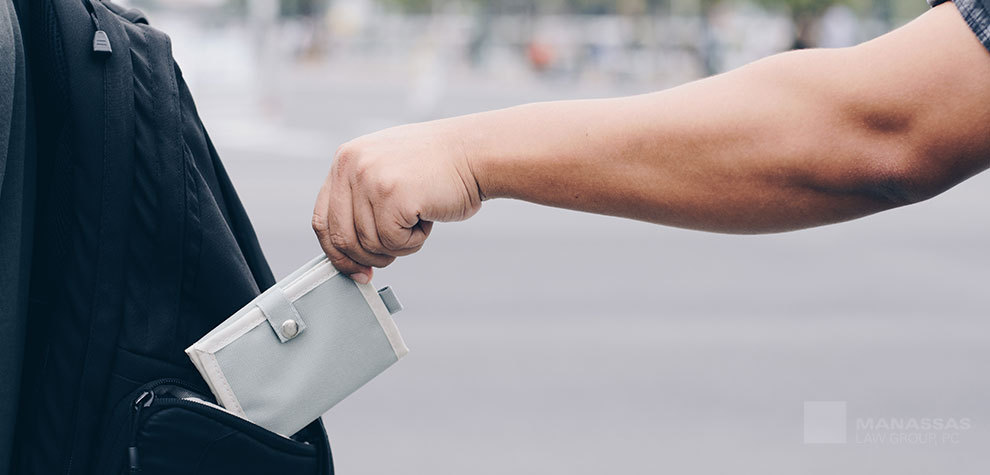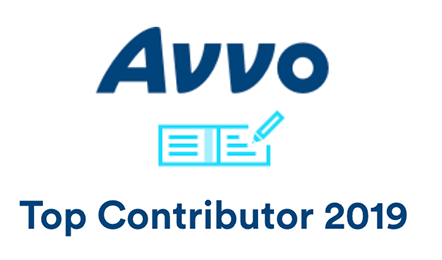Larceny is a legal term for theft; there are two types of larceny in Virginia. Grand larceny in Virginia is a legal term for felony theft. Petty larceny, or petty theft, is a misdemeanor. Courts differentiate the two depending on the value of the stolen item. If the item is worth more than $500, it is a felony. Less than $500, and it is a misdemeanor.
The penalties for these two crimes can be very serious, and the more offenses you commit, the more serious they become.
At the Manassas Law Firm, we understand that people make mistakes and that not everyone deserves long prison sentences for a non-violent crime like theft. If you read on, we will explain the differences between grand larceny in Virginia and petty larceny in Virginia. We will also detail the possible penalties and legal defenses for each.
What is Grand Larceny in Virginia?
Grand larceny in Virginia is a felony. To have committed grand larceny, the prosecution must prove you did one of three things:
- Larceny from a place of items worth $500 or more, or
- Larceny from the body of a person of anything worth $5 or more, or
- Larceny of a firearm or gun, regardless of value.
Let’s break each of those down.
The first one means, for example, if you steal something from someone’s garage that is worth more than $500, that is grand larceny. This does not include stealing from a store. That is shoplifting, and there is a separate category for that in Virginia law.
The second point is in regards to things like pick-pocketing or purse snatching. Taking nearly anything from another person’s body is immediately a felony.
The third point is relatively self-explanatory. If you steal a gun, no matter how much it is worth or the circumstances of the taking, it is a felony.
You could face up to 20 years in prison and a $2500 fine.
What Happens on the First Offense Grand Larceny in Virginia?
Even with a first offense, grand larceny in Virginia is a very serious crime. Jail time is a likelihood. Just because it is the first offense, the judge will not simply dismiss the charges.
Second and third larceny offenses in Virginia almost always equal jail time. Whether this is your first grand larceny charge or your third, you need legal representation.
If it is your first offense, however, there is a chance the courts might reduce your felony charge to a misdemeanor.
Reducing Felony Larceny to a Misdemeanor
The difference between grand larceny in Virginia and petty larceny is the value of the items in question. A good lawyer can argue that value is uncertain, and as a result, your felony can become a misdemeanor.
What is Petty Larceny in Virginia?
Petty, or petit (from the French for “small”) larceny is a misdemeanor. To commit petty larceny, you must have done one of two things:
- Larceny from a place of items worth less than $500, or
- Larceny from the body of a person of items worth less than $5.
These scenarios are the same as the first two scenarios of grand larceny. The only difference are the values.
This is a class 1 misdemeanor. It is punishable with twelve months of jail time and a $2500 fine.
First Offense Petty Larceny
Unlike a first offense of grand larceny in Virginia, a first offense petty larceny charge is subject to certain leniency. But it will still remain on your criminal record, so legal representation is highly advisable.
Any second and third offenses of petty larceny in Virginia almost always result in jail time.
What is Shoplifting in Virginia?
Shoplifting in Virginia is a theft. It is larceny. But it has its own section of the law because it is specific to items the defendant takes from a store.
Virginia Code Section 18.2-103
Virginia Code Section 18.2-103 separates felony and misdemeanor shoplifting charges by the value of the merchandise in question. Shoplifting of items worth more than $500 is felony shoplifting. For items worth less than $500, it is misdemeanor shoplifting.
But what exactly is shoplifting, according to Virginia?
Shoplifting is the taking of merchandise from a store without permission, with the intention of making it your own without paying for it. Shoplifting could also simply be defrauding the owner of the value of the object, thus paying less for it without the merchant’s permission.
This means that shoplifting can be either walking out with unpaid merchandise or changing price tags or stickers on merchandise.
The Virginia Code criminalizes the following acts as shoplifting:
- Purposely hiding, concealing, or taking merchandise in a store
- Altering the price tag or other price markings
- Transferring items from one container to another.
What are Larceny Penalty Enhancements?
There are several circumstances that lead to penalty enhancements for larceny charges in Virginia. Most of them apply to misdemeanor larceny charges, though one of them does apply to grand larceny in Virginia.
Larceny with Intent to Sell
Grand larceny in Virginia with intent to resell the merchandise has a minimum prison penalty of 2 years. When the defendant allegedly takes more than one of the same item in the course of grand larceny, that is direct evidence of intent to resell.
Subsequent Petty Larceny Convictions
If you have a prior larceny record, Virginia mandates a 30-day minimum jail sentence for your second offense.
What is the 3 Strike Rule in Virginia?
Your third misdemeanor larceny offense becomes a class 6 felony. A 30-day minimum jail sentence will accompany this charge. In addition, carrying the charge on your record is a punishment in and of itself.
There are penalty enhancements for every subsequent larceny conviction. It is essential that you do not simply accept a first offense larceny charge when a good attorney could help. No one knows what the future may bring, after all.
Contact the Manassas Law Firm
The Manassas Law Firm has nearly 65 years of experience defending and representing the residents of Virginia. They can do the same for you. If you or a loved one is facing grand larceny in Virginia charges, petty larceny charges, or shoplifting charges, it is imperative that they have representation.
To contact the Prince William County theft defense lawyers at Manassas Law Group, call 703.361.8246 to schedule a no-fee case evaluation. You can also fill out our online contact form.
















